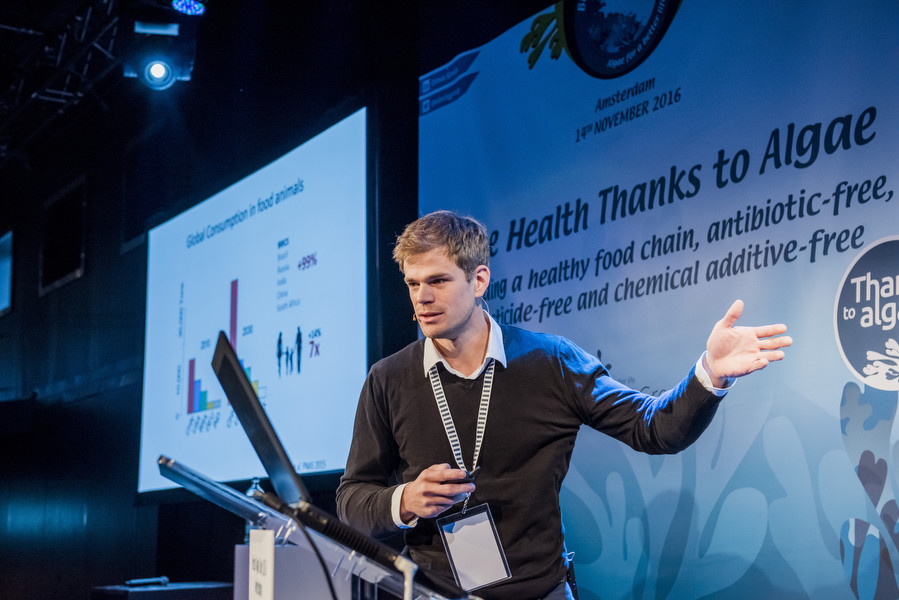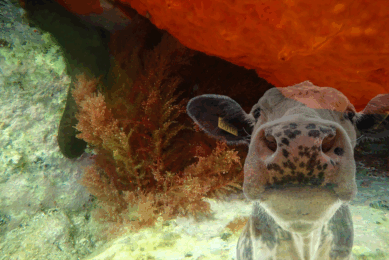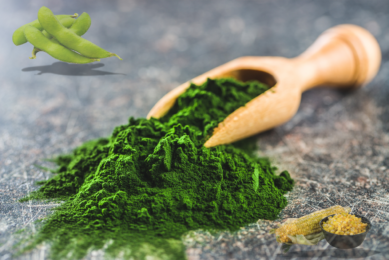Breizh Algae Tour: “Algae might be silver bullet”

This year’s Olmix Group’s annual meeting – The Breizh Algae Tour – shed light on solutions to grow plants, raise animals and process food without pesticides, antibiotics and chemical additives.
The event took place in Amsterdam, the Netherlands and welcomed 400 delegates from 44 different countries. At the plenary session a great set of speakers were present to update the audience on how algae can be a powerful tool to reduce antibiotics in livestock production and pesticide use in crop production.
“We need the sea”
Martin Scholten from Wageningen University in the Netherlands kicked off the morning session and talked about the undiscovered nexus between livestock and seaweed production. Scholten explained that 70% of the world is covered by oceans. “We need the sea and there is a yield gap in the sea. We can harvest so much more valuable ingredients from the sea. The challenge is to apply these products in food and feed. Algae is a very interesting and valuable source of protein, lipids, but in particular the fine biobased elements that are in the algae, called marine sulphated polysaccharides (MSPs),” Scholten stated. He also named the potential to further select and breed algae varieties, just like we did the last 50 years with rice and grains because. There is a large variation of the algae found in the sea, and variation means that you can select!”
Antibiotic reduction
Thomas Van Boeckel, postdoctoral research fellow at ETH Zurich, Switzerland gave a good overview of the antibiotics use and the antibiotic resistance issues associated with that. “If we don’t take action, antibiotic (antimicrobial) use could rise with 67% by 2030.” This is a worrying prediction, but luckily already some countries have taken the lead to carry out measures to reduce the antibiotic consumption. Van Boeckel named the Netherlands as an example. “This country invested in hygiene measures, nutrition and overall management, against relatively small investments by farmers (€1,000 – 10,000). Although these may be relatively high investments for farmers in other regions of the world,” Van Boeckel said. He also mentioned that the approach of consumer media is influencing the way that people look at the use of antibiotics in livestock production. Some headlines in the US for example are very insinuating and have a huge effect on the public perception of agriculture and the way the food is produced. “The public perception is changing and the livestock sector has to listen to this,” Van Boeckel mentioned.
MSPs in algae
Thomas Pavie, director “One Health” at the Olmix Group showed the way Olmix is working with the different products in its portfolio to get the best out of the animals. “The MSPs found in algae are unique components and a real treasure. They are known to have a positive effect on immunity and gut health, but also have potential to act as an antimicrobial,” Pavie explained. Olmix has developed the SAGA concept, a program including a range of products to boost immunity, gut health and reduce mycotoxins during the whole production period of the animals (for use by the farmer, products in the feed or products applied by the veterinarian). MSPs are an important part of this approach. “The newly opened Breizh Algae School in France is teaching the farmers, vets and nutritionists about the right way to apply these products,” said Pavie.
Reducing pesticides use
Commercial director from Melspring (part of Olmix Group), Johannes Tuinhof explained the need to reduce pesticide use in the global crop production. Tuinhof: “The intensified use of current cropping systems have had an effect, that is: increased use of pesticides. China is the biggest consumer of these products. But also North America and Europa are heavy users of pesticides. At Melspring we offer algae based products that make the plants stronger and more resistant and to increase its own stress relief possibilities, hence reducing the need for pesticides. It is the integrated plant health management approach. This is also beneficial when you think of the changing weather patterns (climate change) where plants will be more subjected to drought and increased rain in some parts of the world.” Tuinhof addressed that the ‘natural’ approach of reducing pesticide use and use algae-based products is only possible with a change of attitude and a change of focus.
The plenary session was followed by workshops, dedicated to animal care, plant care and human care.











